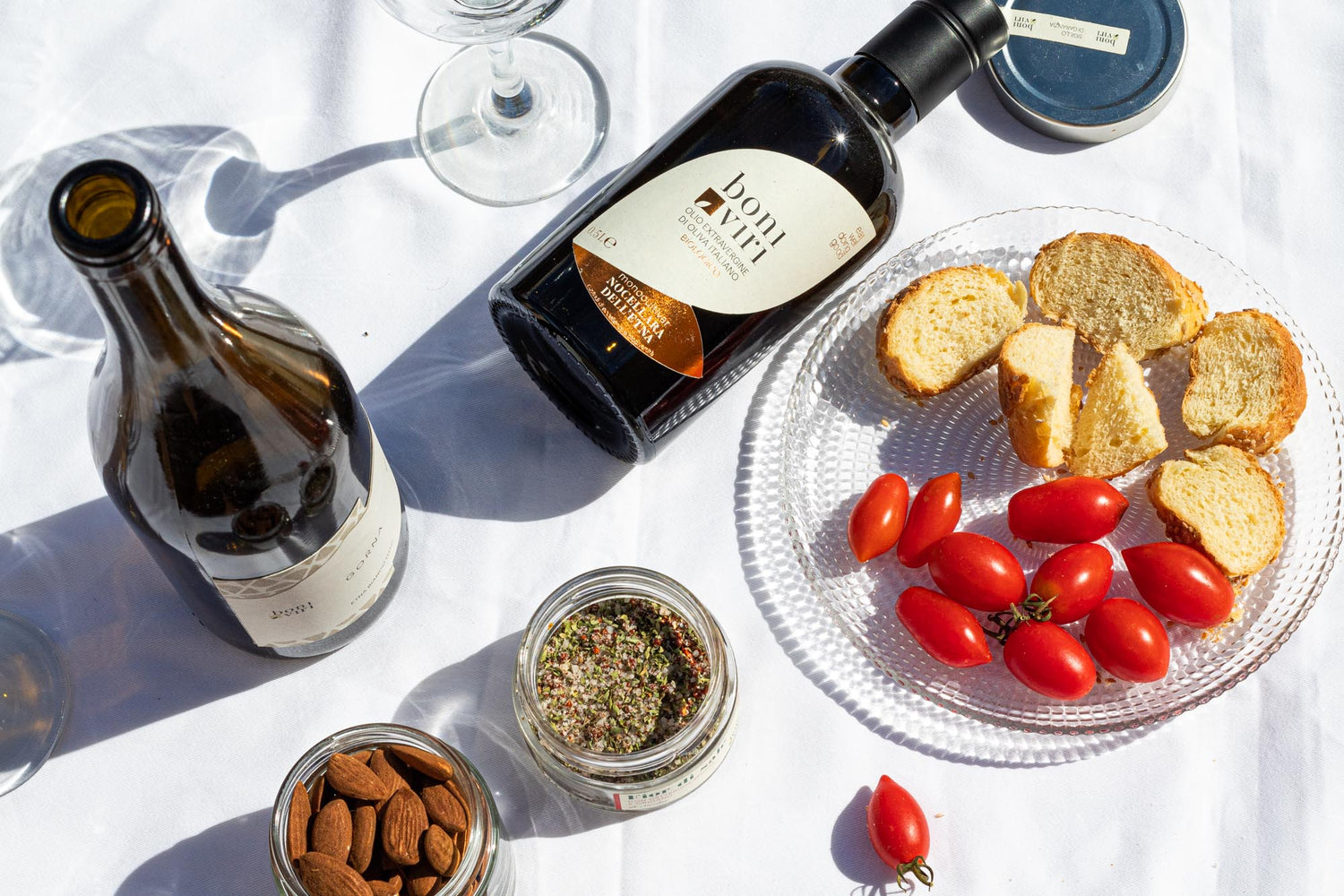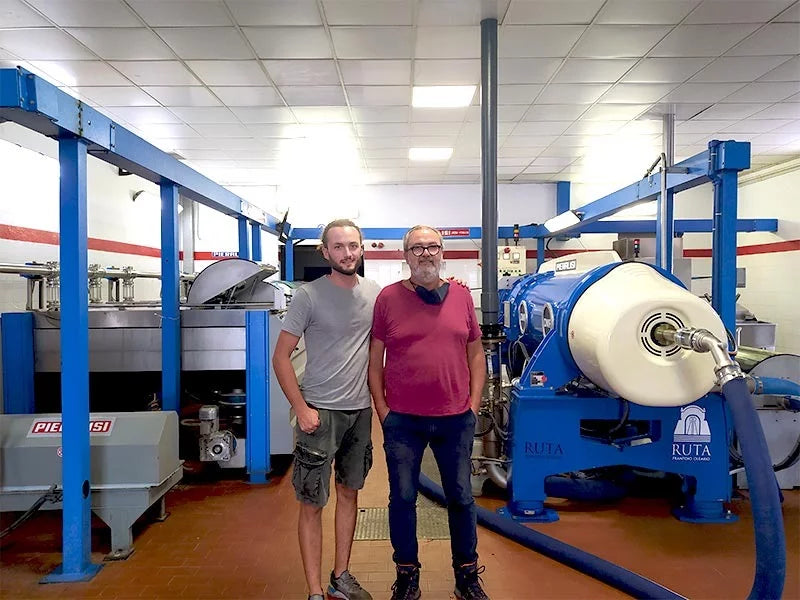Published date: September 21, 2021
A Sunday at Frantoio Ruta, where Giorgio Ruta, master olive press maker from Castelluccio, in the province of Syracuse, preserves and passes on the ancient art of oil with a courageous and visionary project.
“Ciccio, will it rain tomorrow?” The air is tense at Frantoio Ruta, a mecca for green gold seekers spread across the hills of Castelluccio. “It seems so, but only tomorrow, Dad,” Ciccio replies with a frown. A rainy day is not enough, a lot of water is needed to bring the olives to the right ripeness, explains Giorgio Ruta, who has run the family mill for forty-one years. “The olive tree is an exception to nature. It is a selfish tree, it refuses to suffer. If it rains little, it abandons its children to the ground and the year is wasted.” So the machines shine, the workers are ready to celebrate the oil mass, but still no one is seen in the mill.
An immense belt of centuries-old olive trees surrounds the mill, where three generations of Ruta were born and raised. Hanging on the white walls of the building are family photographs, bottles of all shapes and colors hug tightly so as not to fall off the shelves. Through the windows of the administrative office where Graziana, Giorgio's eldest daughter, works, you can glimpse the heavy crown of medals that the mill has won over the years. "My father built it in 1953, I spent my childhood among machines, olives and oil. At the time, production was very different, the work in the mill was very tiring. I immediately felt that this would be my life. When I graduated, my father gave me the keys: 'now you take care of it, the company is yours'."
As he speaks, Giorgio sniffs the wind and nervously rubs his large dark hands. I am struck by his straight gaze, his clear ideas. “I immediately chose the path of quality. I imposed very strict rules on the growers: timing, harvesting method, transport, everything. I no longer accepted compromises: those who did not respect them did not enter the mill. The first year I lost over 50% of my customers, it was very hard. But in the long run these choices paid off, after a very difficult initial period we began to grow year after year. Today we have six hundred and thirty customers, the largest companies in the area come to me to crush and ask me for advice. And together we win prizes and mentions.” A choice that has borne fruit, especially now that competition from foreign markets has become fierce.
Ciccio gets up, talks to the workers, checks the machines and the timetable. He is present. Thin, with a quick look and expert hands, even if young, Ciccio is the expression of that new generation eager to learn and with the crazy desire to innovate. From his movements, I understand that the Ruta family has oil in their blood. “Ciccio lives for oil, he spends all day in here. Without passion you can’t do this job. You have to feel the work of the miller inside.” Inside, Giorgio also has the sound of the machines: “I wanted the bedroom in front of the mill so I can hear them and understand if everything is working well.”
I wonder how there is still room for innovation in such an ancient art. “See those two machines? They are the crushers, I bought two so as not to overheat the olive paste. I convinced the producer to modify the production line, today he also sells this solution to other mills.” Technology and experience, experience and technology, he continues to repeat while looking affectionately at Ciccio who, despite nine years in the mill, still cannot manage the separator alone, a crucial point in the transformation process. “Either it’s me or my partner, a few moments more or less and the oil is not perfect. Ciccio is learning quickly, soon he too will be alone.”
An old man interrupts us, looking for Giorgio. “He lives a little further on, every now and then he brings me a chicken, I return it with oil, we are a very close-knit community, for those who live here the oil mill is a point of reference.” Here, he explains to me, it becomes a community, but also a culture: “in the past we organized initiatives to talk about oil. It wasn’t Covid that interrupted them, but the rudeness of some people who left a long trail of degradation and garbage when they came to the oil mill.” A problem that, unfortunately, goes beyond the oil mill and that, like everyone he meets, Giorgio faces and solves: “in Modica, with the new administration to which I belong, we have revolutionized waste collection by breaking the old habit of contracts. We have entrusted the task to local farms, giving each a piece of the city. They save municipal taxes, we save money on contracts. And so we all win: the municipality, the citizens, the country.”
Time passes quickly, but the clouds do not. They are there, dried from the sky. Giorgio, what is your greatest satisfaction? With an intense look, he points to the small flat tap from which the new oil flows. “If the oil that comes out of there has the right shade of green, it means we have worked well and I am happy.”
We have to leave again, let's take the last photo: Giorgio and Ciccio under the Ruta 1953 sign. Yesterday, today and tomorrow of a beautiful story that we at Boniviri are lucky enough to write together.




